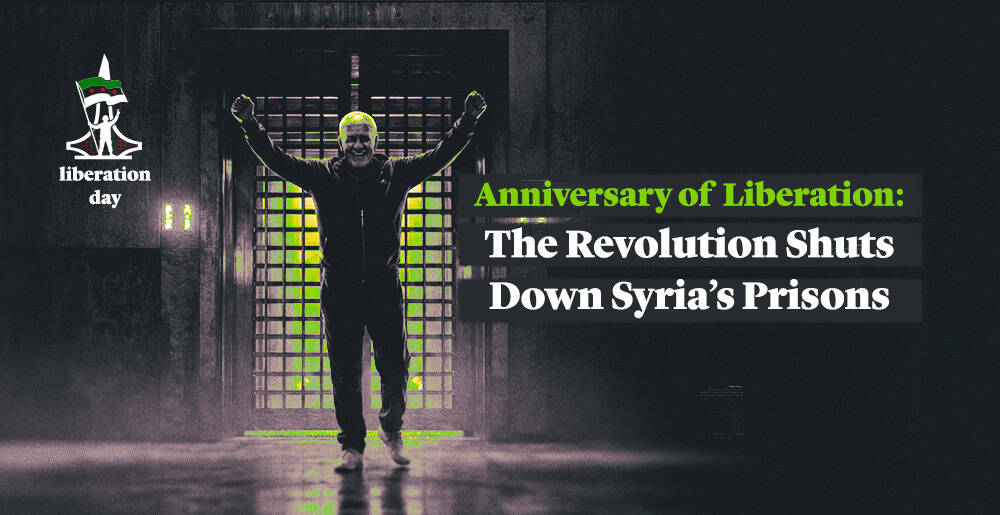How the Canadian Province of Quebec Violates the Religious Freedom of Muslim Students

The Quebec Superior Court denied a request by Muslim organizations to suspend the province’s ban on prayer rooms in public schools, Canadian media reported.
Quebec banned the allocation of prayer rooms in schools under the pretext of preserving the secular character of the state while only allowing silent prayers, which was described as targeting the Muslim minority in the province.
The decision subsequently sparked angry reactions in Canadian society and on social media platforms, especially as it comes at a time when the phenomenon of Islamophobia is widespread in Canadian society.
The prayer room ban reflects Quebec’s official policy of state secularism. While proponents assert that the policy of secularism protects Quebecois values, others argue it has resulted in laws that restrict religious freedoms and discriminate against religious and ethnic minorities.
It is noteworthy that, as part of its efforts to preserve its secularism, the province of Quebec seeks to impose a ban on the wearing of religious clothing and symbols, such as the veil, through Law 21, which was passed in 2019, amidst Islamic organizations in particular seeking to appeal against it.
Religious Violation
On June 14, 2023, a Quebec Superior Court judge denied a request by a Muslim advocacy group and a civil liberties organization to suspend the province’s ban on prayer rooms in public schools.
The Canadian Civil Liberties Association (CCLA) and the National Council of Canadian Muslims (NCCM) had argued that the ban was causing irreparable harm to Muslim students and needed to be suspended immediately.
Muslim students couldn’t wait while the wider legal challenge made its way through the courts, they said.
The NCCM and the CCLA say the decree breaches students’ rights, including the right to religious freedom and to equality as guaranteed by the Canadian and Quebec Charters of Rights and Freedom.
Last May, six groups—which include the Muslim Association of Canada (MAC), the Canadian Muslim Forum (CMF), and four local organizations—filed a lawsuit asking the court to declare constitutionally invalid, inapplicable, inoperative, or to annul the order to prohibit all forms of prayer in public schools.
Justice Lukasz Granosik reasoned that because regular classes have ended for the summer and because the challenge was not launched immediately when the ban was announced, there is no clear and urgent reason to suspend the rule before a full trial.
The judge said there were serious questions about the constitutionality of the ban but that they would be settled during a full trial, The Canadian Press reported.
“There is a head-on collision regarding the use of public space. Between the prohibition of overt prayer and religious practice and the secular status of this space; it is a given that the infringement of religious freedom continues,” Granosik reasoned.

Discrimination or Secularism?
On April 5, the Canadian Parliament in the province of Quebec approved a new bill proposed by the Parti Quebecois, and it received the support of all deputies and members, which stipulates that establishing places for prayer, regardless of sect, in public school buildings is contrary to the principle of secularism.
Although Quebec’s Education Minister Bernard Drainville suggested earlier that prayer rooms be dedicated to all religions and not monopolized by one religion only, with an emphasis on gender equality, he toughened his position after that, under pressure from the Parti Quebecois.
Following news reports about at least two Montreal-area schools allowing Muslim students to pray, Drainville banned schools from offering dedicated prayer spaces, citing the province’s policy on institutional secularism.
Drainville issued an official directive on April 19 to ban the practice of any official religious activities, whether inside schools, vocational training centers, or adult education centers, referring to institutional secularism and the need to separate the state and religions.
He defended his decision at the time, saying: “Schoolyards cannot be used, realistically or outwardly, for the purposes of religious practices, such as praying in open spaces or other similar practices.”
On May 3, following the directive from the education minister, the schools implemented a total ban on prayer in them.

In addition, the decision to ban prayer rooms in schools sparked angry reactions, as the NCCM described it as another unacceptable escalation by the provincial authorities against the rights of minorities to score political points.
It said that under the new law, educational institutions in Quebec will now have to censor the spiritual lives of young Muslims.
It added, “Muslim students should not have to worry about being targeted by their government simply for exercising their right to pray.”
(5) Muslim students should not have to worry about being targeted by their government simply for exercising their right to pray.
— NCCM (@nccm) April 9, 2023
We are evaluating the situation and will have more information as events unfold.
“In a secular democratic country, no government should be telling anybody, much less children, how to pray,” said NCCM CEO Stephen Brown.
“Our children should not be contending with the state meddling in their spiritual lives. We cannot allow for the state to police our children in schools, a place where they should be learning and growing in a safe and supportive environment regardless of their religious background. This is why we will not stop until this decree is struck down,” he added.
“Having a ban on prayer has really negative impacts on children. They feel like they have to hide when they go to school. They are worried about being punished for being who they are,” Brown affirmed.
“This directive has nothing to do with secularism, but it has everything to do with discrimination against a minority and the politics of division. Where is the separation of religion and state? Where is the government’s religious neutrality?” he said.
On its part, Muslim Engagement and Development (MEND), a UK NGO, has stood in solidarity with Canadian Muslims, stressing that prayer space at schools should be a right and not something arbitrarily denied by the state.
Solidarity with Canada's Muslims.
— MEND Community (@mendcommunity) April 9, 2023
Prayer space at schools should be a right and not something arbitrarily denied by the state. https://t.co/jMI1364PPH
Activist Brian Carwana commented on his Twitter account, saying: “The Quebec government is so needlessly aggressive on attacking religiosity.”
The Quebec government is so needlessly aggressive on attacking religiosity. Let the schools make space for their students as they see fit. Unless students are being harmed or pressured (clearly not here), there’s no need for the authoritarian intrusions. https://t.co/VovOOlNvTM
— Brian Carwana (@ReligionsGeek) April 10, 2023
Islamophobia in Canada
Islamophobia is deeply entrenched in Canadian society, and Black hijab-wearing women are the most vulnerable, a Canadian Senate committee report said last April.
Far-right and anti-Muslim hate groups are growing, along with incidents of hate, according to a report by the Senate Committee on Human Rights. The report is set to be released in its entirety in July.
It is noteworthy that since the shooting at a Quebec mosque in January 2017, hate crimes have increased dramatically in Canada amid calls by Islamic organizations to tighten laws in order to criminalize Islamophobia.
In early 2017, an armed attack targeted worshipers in a mosque in Quebec, killing 6 people.
The number of Muslims in Quebec in 2020 was estimated at 300,000 out of a total of 8 million.
In 2017, Muslim and civil rights groups challenged a Quebec ban on officials or anyone receiving public services from covering their faces, arguing it infringes on women’s and Muslim religious rights.
In 2021, a court in Quebec upheld parts of a Bill 21 that bans some government workers from wearing religious symbols—such as the hijab—at work, despite acknowledging that it violates the rights of Muslim women.

A recent study published by the Canadian Angus Reid Institute revealed the prevalence of anti-Islam opinions across Canada in varying and disturbing proportions, and the highest levels were in the eastern province of Quebec.
The study found that more than half of Quebecers hold negative views of Muslims.
In late January, Canada appointed its first Special Representative on Combating Islamophobia, a position created after attacks against Muslims in Canada increased, including a 71% increase from 2020 to 2021.
Journalist and human rights activist Amira Elghawaby has been selected for this position, according to Canadian Prime Minister Justin Trudeau’s office.
Sources
- Quebec judge rejects request from Muslim group to suspend ban on school prayer rooms
- Muslim advocacy group asks Quebec court to suspend school prayer ban
- Quebec bans use of classrooms as prayer spaces
- Quebec to ban prayer rooms in public schools, says only ‘silent’ praying allowed
- Islamophobia entrenched in Canada, Senate committee report says
- How Quebec Became Canada’s Most Islamophobic Province











